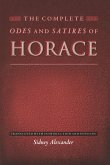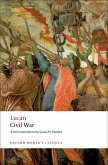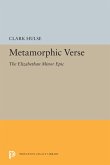In a fresh interpretation of Lucretius's On the Nature of Things, Charles Segal reveals this great poetical account of Epicurean philosophy as an important and profound document for the history of Western attitudes toward death. He shows that this poem, aimed at promoting spiritual tranquillity, confronts two anxieties about death not addressed in Epicurus's abstract treatment--the fear of the process of dying and the fear of nothingness. Lucretius, Segal argues, deals more specifically with the body in dying because he draws on the Roman concern with corporeality as well as on the rich traditions of epic and tragic poetry on mortality.
Segal explains how Lucretius's sensitivity to the vulnerability of the body's boundaries connects the deaths of individuals with the deaths of worlds, thereby placing human death into the poem's larger context of creative and destructive energies in the universe. The controversial ending of the poem, which describes the plague at Athens, is thus the natural culmination of a theme developed over the course of the work.
Originally published in 1990.
The Princeton Legacy Library uses the latest print-on-demand technology to again make available previously out-of-print books from the distinguished backlist of Princeton University Press. These editions preserve the original texts of these important books while presenting them in durable paperback and hardcover editions. The goal of the Princeton Legacy Library is to vastly increase access to the rich scholarly heritage found in the thousands of books published by Princeton University Press since its founding in 1905.
Segal explains how Lucretius's sensitivity to the vulnerability of the body's boundaries connects the deaths of individuals with the deaths of worlds, thereby placing human death into the poem's larger context of creative and destructive energies in the universe. The controversial ending of the poem, which describes the plague at Athens, is thus the natural culmination of a theme developed over the course of the work.
Originally published in 1990.
The Princeton Legacy Library uses the latest print-on-demand technology to again make available previously out-of-print books from the distinguished backlist of Princeton University Press. These editions preserve the original texts of these important books while presenting them in durable paperback and hardcover editions. The goal of the Princeton Legacy Library is to vastly increase access to the rich scholarly heritage found in the thousands of books published by Princeton University Press since its founding in 1905.
Dieser Download kann aus rechtlichen Gründen nur mit Rechnungsadresse in A, D ausgeliefert werden.









